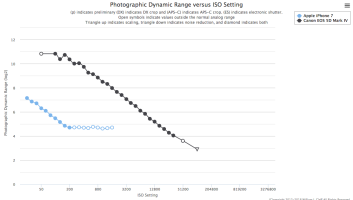HTML:
We all know how smartphones have pretty much killed the compact camera segment, but the growth is not simply because of convenience, the quality of smartphone cameras has improved faster than any other type of camera.</p>
<p><a href="https://www.dxomark.com/disruptive-technologies-mobile-imaging-taking-smartphone-cameras-next-level/">DxOMark breaks down how smartphone cameras</a> and image processing has improved exposure, noise control, maintaining detail, stabilization, autofocus, zoom and the most recent, bokeh simulation.</p>
<p><strong>From DxOMark:</strong></p>
<blockquote><p>Looking at the past 5 years of smartphone camera development, we can see that camera hardware and image processing are evolving alongside each other and at a much faster pace than in the “traditional” camera sector. DSLRs and mirrorless system cameras are still clearly ahead in some areas — for example, auto exposure, but in terms of image processing, Canon, Nikon, Pentax and the other players in the DSC market are behind what Apple, Samsung, Google, and Huawei can do. Thanks to their hardware advantages, the larger cameras don’t actually need the same level of pixel processing as smartphones to produce great images, but there is no denying that the performance gap between smartphones and DSLRs is narrowing. <a href="https://www.dxomark.com/disruptive-technologies-mobile-imaging-taking-smartphone-cameras-next-level/">Read the full report</a></p></blockquote>
<p>While I agree that the gap between smartphones and DSLRs is narrowing, it’s still not close and I’d even argue that smartphones aren’t close to prosumer compact cameras either.</p>
<span id="pty_trigger"></span>
